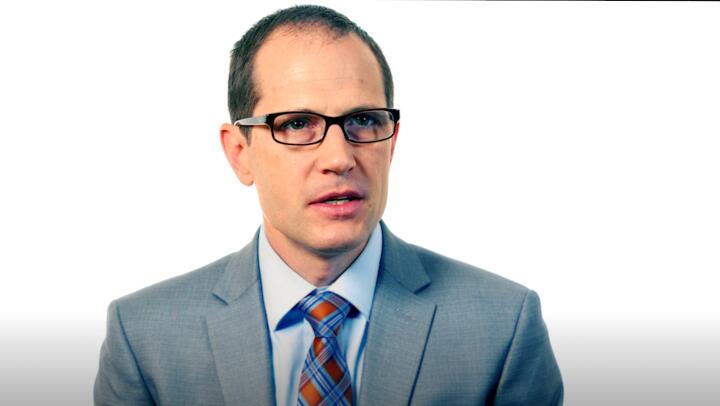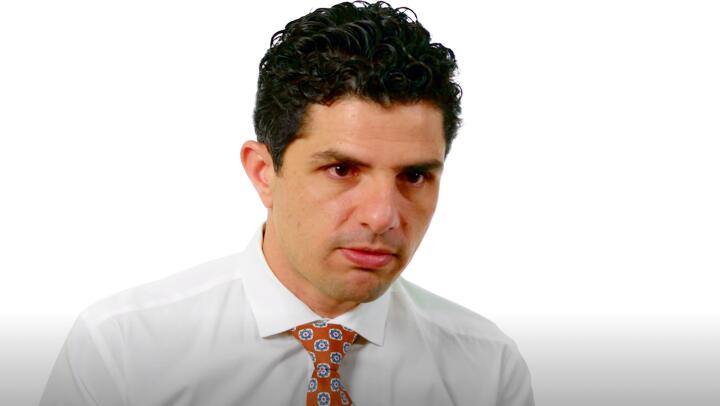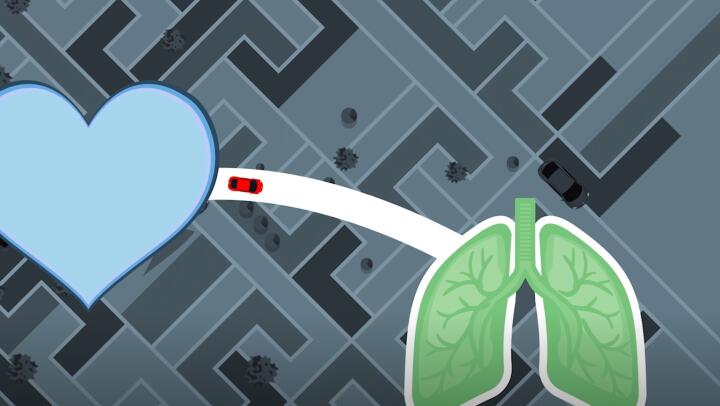This article will explain cor pulmonale symptoms and causes. It will also discuss the diagnosis and treatment of cor pulmonale.
What are the symptoms of cor pulmonale?

The first symptom of cor pulmonale is usually feeling short of breath or lightheaded with activity. You may also notice that your heart is pounding faster than it normally does with a certain activity.
With heart failure, symptoms typically become more severe over time as the heart weakens. As the condition progresses, symptoms can appear with light activity or even when you are resting.
Symptoms can include:
- fainting
- chest pain or discomfort, especially in the front of the chest
- swelling in your feet or ankles
- respiratory symptoms, such as wheezing, coughing, or coughing up mucus
- bluish tinge to your lips and fingers or appearing paler than usual for your skin tone
- dizziness
When to contact a doctor
In general, cor pulmonale symptoms begin gradually and progress slowly. However, there can also be sudden causes of right sided heart failure, such as a blood clot in the pulmonary artery.
If you experience any sudden symptoms, such as dizziness, fainting, chest pain, or trouble breathing, call 911.
Contact your primary care physician for unusual symptoms that do not go away.
What causes cor pulmonale?
Cor pulmonale develops when a lung disease increases the pressure in the right side of the heart.
Over time, this forces the heart to work harder than usual to pump blood. Eventually, this additional effort strains the heart to the point that it affects heart function.
Conditions that can lead to cor pulmonale include:
- chronic obstructive pulmonary disease (COPD)
- blood clots in the lungs, known as pulmonary embolism (PE)
- spinal disorders that affect the upper part of the spine and chest wall
- obstructive sleep apnea
- diseases that affect the blood vessels of the lungs
- conditions that damage the lungs, including cystic fibrosis and lung-associated autoimmune disorders
The most common cause of cor pulmonale is COPD. PE is the most common cause of acute cor pulmonale, according to a
Can you prevent cor pulmonale?
Not all causes of cor pulmonale can be prevented, but some can. Lowering the risk factors for underlying causes, such as COPD, can reduce your chance of developing cor pulmonale.
Treating the underlying cause may also help prevent cor pulmonale or slow it down. For pulmonary hypertension, there are procedures that can help lower the pressure in the pulmonary artery. Surgery may also be necessary to remove a blood clot.
Cigarette smoking is the main risk factor for COPD. It may also be caused by air pollution. To reduce your risk, avoid smoking and limit your time in highly polluted areas.
The prevalence of cor pulmonale varies significantly between countries. An estimated
How do doctors diagnose cor pulmonale?
To diagnose cor pulmonale, a doctor will start with a physical assessment. They will check your vitals, such as breathing rate, heart rate, blood pressure, temperature, and weight. They will also ask about your medical history.
Heart and lung tests are then necessary to diagnose cor pulmonale and identify any underlying cause. These can include:
- blood tests
- imaging of the chest, including X-rays and CT scans
- echocardiogram
- electrocardiogram
- arterial blood gas to check blood oxygen levels
- lung function tests
- right heart catheterization,
considered Trusted Source PubMed Central Highly respected database from the National Institutes of Health Go to source the gold standard for identifying both pulmonary hypertension and cor pulmonale
How do doctors treat cor pulmonale?
Treatment for cor pulmonale includes both short-term and long-term treatments. Short-term treatment addresses any immediate symptoms, such as shortness of breath. Long-term treatment attempts to correct or manage the underlying cause of the condition.
Short-term treatment
Short-term treatment for cor pulmonale focuses on supporting the heart and reducing strain. This can include:
- oxygen support
- medications to reduce fluid in the body
- rest
Long-term treatment
Long-term treatment focuses on treating or managing the underlying cause of the heart failure. This can
- oxygen support
- rest and management of activity levels
- medication to reduce fluid in the body, ease the burden on the heart, and reduce the chance of blood clots
Surgical procedures
A lung or heart transplant may be an option for severe cor pulmonale.
Lifestyle and self-care
Long-term treatment also includes managing the condition through certain lifestyle changes, such as:
- quitting smoking
- avoiding high altitudes that could put more pressure on the heart
- making dietary changes, such as reducing salt intake or drinking more fluids
- using contraception to reduce the chance of pregnancy
- keeping up with preventive vaccines to avoid getting sick, which can put excess strain on the heart
- avoiding high energy activities
What is the outlook for those with cor pulmonale?
Ongoing treatment for cor pulmonale and the condition causing it can help reduce symptoms and increase comfort. However, over time, cor pulmonale may worsen. It may then become increasingly difficult to manage the effects on the heart. Low heart function can also begin to affect other organs, such as the kidneys.
The life expectancy of someone with cor pulmonale
If you or someone you care for has cor pulmonale, it may require working closely with a team of heart failure specialists. This may include medical professionals such as a cardiologist, a pulmonologist, and other types of doctors.
Other frequently asked questions
Here are some other questions that people ask about cor pulmonale.
What is the most common cause of cor pulmonale?
The most common cause of cor pulmonale is COPD.
How does COPD cause cor pulmonale?
COPD increases pressure in the blood vessels leading to the lungs. The higher pressure leads to changes in the structure and function of the right ventricle.
What are the key characteristics of cor pulmonale?
The key characteristics of cor pulmonale involve the right ventricle of the heart. These include increased size, increased pressure, and decreased pumping action. The main symptoms are dizziness, chest pain, shortness of breath, and fatigue.
Is cor pulmonale an emergency?
This depends on the exact cause of the condition, but it can be life threatening. Cor pulmonale due to a pulmonary embolism is an emergency. Anyone experiencing trouble breathing should seek immediate medical attention.
Summary
Cor pulmonale is right sided heart failure caused by an underlying lung condition, most commonly COPD. Lung conditions cause higher-than-normal pressures in the blood vessels that lead to the lungs. This puts excess strain on the right side of the heart. It has to work harder to pump blood and, over time, will stop working correctly.
The treatment and outlook for cor pulmonale depends on the exact cause. Treatment strategies can help manage the condition. These include using oxygen, quitting smoking, eating a low salt, healthy diet, and avoiding putting extra strain on the heart.





















